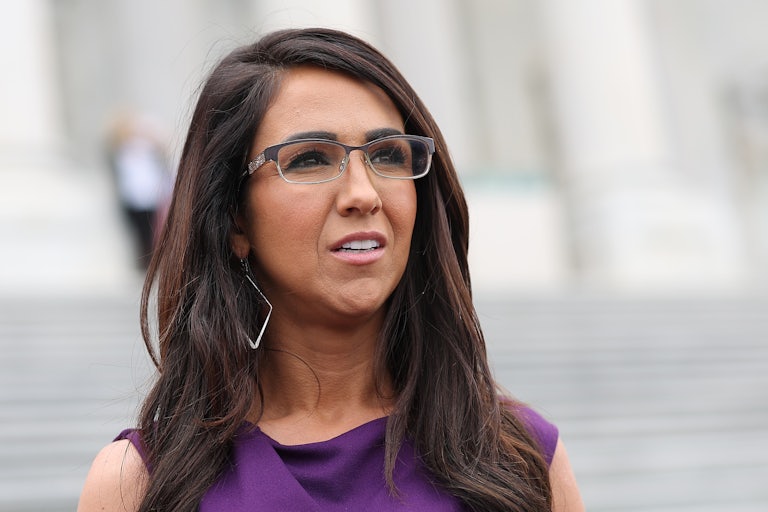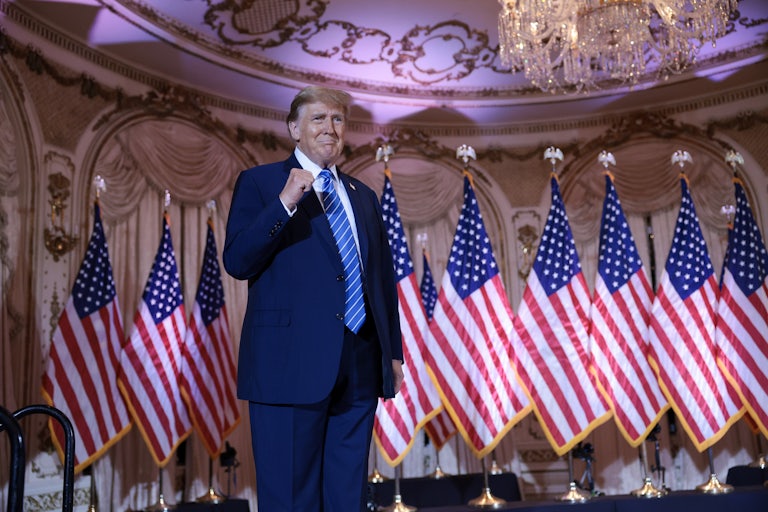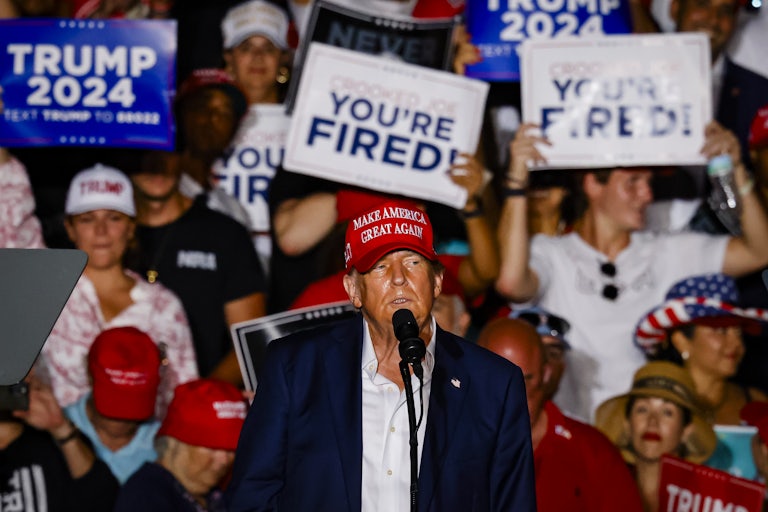Boebert Gets Brutally Schooled on Supreme Court Ruling
The Colorado Republican was trying to start another culture war, but it backfired spectacularly.

Representative Lauren Boebert made an embarrassing display Wednesday when trying to speak about a recent U.S. Supreme Court decision, and got slammed with a sorely needed fact-check from one of her Democratic colleagues.
During a House Oversight Committee hearing, the MAGA Colorado Republican attempted to interrogate Environmental Protection Agency Administrator Michael Regan about the fallout of the Supreme Court’s ruling in Loper Bright Enterprises v. Raimondo, which changes how the courts answer questions about ambiguous statutes.
It became clear from her questions, however, that Boebert had no clue what Loper Bright was, or how it affects federal agencies, as she began insisting that Regan tell her what environmental regulations he planned to repeal.
“I’m asking about the EPA, and I’m asking about your rogue bureaucrats that have enacted these unconstitutional regulations. Are you going to repeal them, are you going to continue to implement them? Or are you going to stop altogether, since it’s been overturned?” Boebert asked.
“Do you understand the ruling?” Regan asked, incredulous.
“Do you understand the ruling of the Supreme Court?” Boebert shot back.
“I do. So, your question is ill-formed. No, we’re not going to stop,” Regan replied, but the far-right politician would not relent. Boebert continued to interrupt Regan as he insisted that “the Supreme Court didn’t tell us to repeal anything.”
“Absolutely, they have,” Boebert said. “This was a huge victory.”
Boebert’s blatant ignorance and time-wasting questions did not go unaddressed. It wasn’t long before Representative Daniel Goldman, a Democrat from New York, hit Boebert with a brutal fact-check.
“Mr. Reagan, I don’t want to spend too much time on this, but I would just like to clarify a few things for my colleague from Colorado,” Goldman said.
“The Loper-Bright ruling, as you know, said that the courts should not defer to agency rule-making if a statute is ambiguous, and instead, the courts get to determine whether or not, what the statute means,” Goldman explained. “Is that your understanding, as well?”
“Yeah, absolutely,” Reagan said, laughing.
“So that would not require any regulations to be reversed or overturned, correct?” Goldman asked.
“Correct,” Regan said.
Yikes… Boebert just walked into a fact check by Goldman pic.twitter.com/WSPwSbyyJE
— Acyn (@Acyn) July 10, 2024
Regan appeared before the House Oversight Committee to discuss a completely different Supreme Court decision from last month: the court’s 5–4 decision to block the “good neighbor” rule, which aimed to reduce the air pollution from industrial facilities from “upwind” states, a ruling that will negatively impact downwind states.








